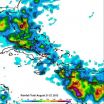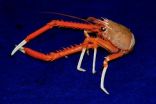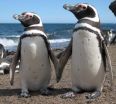(Press-News.org) The fourth-quarter comeback to win the game. The tumor that appeared on a second scan. The guy in accounting who was secretly embezzling company funds. The situation may be different each time, but we hear ourselves say it over and over again: "I knew it all along."
The problem is that too often we actually didn't know it all along, we only feel as though we did. The phenomenon, which researchers refer to as "hindsight bias," is one of the most widely studied decision traps and has been documented in various domains, including medical diagnoses, accounting and auditing decisions, athletic competition, and political strategy.
In a new article in the September 2012 issue of Perspectives on Psychological Science, a journal of the Association for Psychological Science, psychological scientists Neal Roese of the Kellogg School of Management at Northwestern University and Kathleen Vohs of the Carlson School of Management at the University of Minnesota review the existing research on hindsight bias, exploring the various factors that make us so susceptible to the phenomenon and identifying a few ways we might be able to combat it. This article is the first overview to draw insights together from across different disciplines.
Roese and Vohs propose that there are three levels of hindsight bias that stack on top of each other, from basic memory processes up to higher-level inference and belief. The first level of hindsight bias, memory distortion, involves misremembering an earlier opinion or judgment ("I said it would happen"). The second level, inevitability, centers on our belief that the event was inevitable ("It had to happen"). And the third level, foreseeability, involves the belief that we personally could have foreseen the event ("I knew it would happen").
The researchers argue that certain factors fuel our tendency toward hindsight bias. Research shows that we selectively recall information that confirms what we know to be true and we try to create a narrative that makes sense out of the information we have. When this narrative is easy to generate, we interpret that to mean that the outcome must have been foreseeable. Furthermore, research suggests that we have a need for closure that motivates us to see the world as orderly and predictable and to do whatever we can to promote a positive view of ourselves.
Ultimately, hindsight bias matters because it gets in the way of learning from our experiences.
"If you feel like you knew it all along, it means you won't stop to examine why something really happened," observes Roese. "It's often hard to convince seasoned decision makers that they might fall prey to hindsight bias."
Hindsight bias can also make us overconfident in how certain we are about our own judgments. Research has shown, for example, that overconfident entrepreneurs are more likely to take on risky, ill-informed ventures that fail to produce a significant return on investment.
While our inclination to believe that we "knew it all along" is often harmless, it can have important consequences for the legal system, especially in cases of negligence, product liability, and medical malpractice. Studies have shown, for example, that hindsight bias routinely afflicts judgments about a defendant's past conduct.
And technology may make matters worse. "Paradoxically, the technology that provides us with simplified ways of understanding complex patterns – from financial modeling of mortgage foreclosures to tracking the flow of communications among terrorist networks – may actually increase hindsight bias," says Roese.
So what, if anything, can we do about it?
Roese and Vohs suggest that considering the opposite may be an effective way to get around our cognitive fault, at least in some cases. When we are encouraged to consider and explain how outcomes that didn't happen could have happened, we counteract our usual inclination to throw out information that doesn't fit with our narrative. As a result, we may be able to reach a more nuanced perspective of the causal chain of events.
### For more information about this study, please contact: Neal J. Roese at n-roese@kellogg.northwestern.edu.
Perspectives on Psychological Science is ranked among the top 10 general psychology journals for impact by the Institute for Scientific Information. It publishes an eclectic mix of thought-provoking articles on the latest important advances in psychology. For a copy of the article "Hindsight Bias" and access to other Perspectives on Psychological Science research findings, please contact Anna Mikulak at 202-293-9300 or amikulak@psychologicalscience.org.
'I knew it all along…didn't I?' – Understanding hindsight bias
2012-09-06
ELSE PRESS RELEASES FROM THIS DATE:
NASA satellite captured Hurricane Leslie's picture perfect moment
2012-09-06
NASA's Aqua satellite flew over Tropical Storm Leslie on Sept. 5 during a picture perfect moment, just as it was being re-classified as a hurricane, and captured two images of the storm.
The National Hurricane Center issued the advisory confirming Leslie's hurricane status at 1:45 p.m. EDT after examining visible, infrared, microwave and other data from satellites. Two instruments that fly aboard NASA's Aqua satellite provided infrared and visible imagery of Leslie as it was crossing the threshold from tropical storm to hurricane status on Sept. 5.
The Moderate Resolution ...
More grandparents fill caregiver role
2012-09-06
Grandparents, an increasingly important source of child care in the United States, vary greatly in the kind of care they provide, depending on their age, resources, and the needs of their children, research at the University of Chicago shows.
A new UChicago study, based on a National Institute on Aging survey, shows that 60 percent of grandparents provided some care for their grandchildren during a 10-year period, and 70 percent of those who did provided care for two years or more.
The results mirror recent U.S. Census data showing the importance of grandparents in ...
NASA analyzes Isaac's rainfall: Drought relief and flooding
2012-09-06
As it passed through the northern Caribbean, around south Florida, and into Louisiana and the Middle Mississippi Valley, Hurricane Isaac brought lots of rain, some of it beneficial, and some of it not. Using data from the TRMM satellite, NASA created images of rainfall totals generated along Hurricane Isaac's path.
In addition to capturing detailed images of tropical storms, the Tropical Rainfall Measuring Mission (TRMM) satellite is ideally suited to measure rainfall from space. TRMM is managed by NASA and the Japanese Space Agency, JAXA. For increased coverage, TRMM ...
Mining the blogosphere
2012-09-06
Montreal, September 6, 2012 – Can a computer "read" an online blog and understand it? Several Concordia computer scientists are helping to get closer to that goal.
Leila Kosseim, associate professor in Concordia's Faculty of Engineering and Computer Science, and a recently-graduated doctoral student, Shamima Mithun, have developed a system called BlogSum that has potentially vast applications. It allows an organization to pose a question and then find out how a large number of people talking online would respond. The system is capable of gauging things like consumer preferences ...
In Rochester, a tale of tainted tattoos
2012-09-06
If you end up with a rash on a new tattoo, you should probably think twice before brushing it off as an allergic reaction or a normal part of the healing process.
A recent study in the New England Journal of Medicine documents 19 cases in the Rochester, N.Y., area – the largest ever reported – of tattoos infected with a type of bacteria often found in tap water. Evidence points to a premixed gray ink, the type used in currently popular portrait or photography tattoos, as the culprit.
Mary Gail Mercurio, M.D., a dermatologist at the University of Rochester Medical ...
Deep-sea crabs seek food using ultraviolet vision
2012-09-06
HOLLYWOOD Fla. — Some deep-sea crabs have eyes sensitive to ultraviolet light, which they may use to snatch glowing plankton and stuff it in their mouths, a new Nova Southeastern University study suggests.
Tamara Frank, Ph.D., a marine biologist and associate professor at Nova Southeastern University's Oceanographic Center, who is the principal investigator of the study, said that crabs living the deep-sea zone --- a pitch dark area at the ocean bottom ---- may be using bioluminescence to help sort out their food.
Duke University marine biologist Sönke Johnsen. Ph.D., ...
CNIO participates in the ENCODE project: A stride forward in biomedical research
2012-09-06
The international Encode project, a collaborative study bringing together hundred of scientists from all round the world, including researchers working at the Spanish National Cancer Research Centre (CNIO), published results yesterday mapping the control and regulation of genome activity. These results indicate a total of four million 'switches' controlling the gene activity of 147 types of human cells and tissue. This map provides us with the first comprehensive vision of the genome as a complex web of interactions, and goes far beyond our initial thinking, which assigned ...
Urban Real Estate Development Firm Launches Digital Brand
2012-09-06
With the impending completion of redevelopment on 1 & 7 Ionia and another property closing in downtown Grand Rapids, Michigan, soon to be announced, urban real estate development firm 616 Development is establishing its brand in the digital space. The company's new website, 616Development.com, offers detailed insights into the company's founding, its core members, key development projects and its unique approach to urban development. Alongside engagement in prominent social networks, the website lays the foundation for the brand's voice in both digital and non-digital ...
Picky penguins: Does mate choice depend on genes that help resist disease?
2012-09-06
NEWPORT, Ore. – Magellanic penguins have a high level of variation in genes associated with the ability to fight infectious disease, but a recent study found that the mechanism the penguins use to ensure that diversity is far from black and white.
Found exclusively south of the equator in South America, Magellanic penguins assemble in large nesting colonies along the coasts of Argentina, Chile, and the Falkland Islands. They typically mate for life, producing clutches of two eggs that are cared for by both parents. While individual colonies can number in the millions ...
NFL players may be at higher risk of death from Alzheimer's and ALS
2012-09-06
MINNEAPOLIS – New research shows that professional football players may be at a higher risk of death from diseases that damage the cells in the brain, such as Alzheimer's disease and ALS (also known as Lou Gehrig's disease), compared to the general U.S. population. The study is published in the September 5, 2012, online issue of Neurology®, the medical journal of the American Academy of Neurology.
The study included 3,439 players with an average age of 57 from the National Football League with at least five playing seasons from 1959-1988. Researchers reviewed death ...



